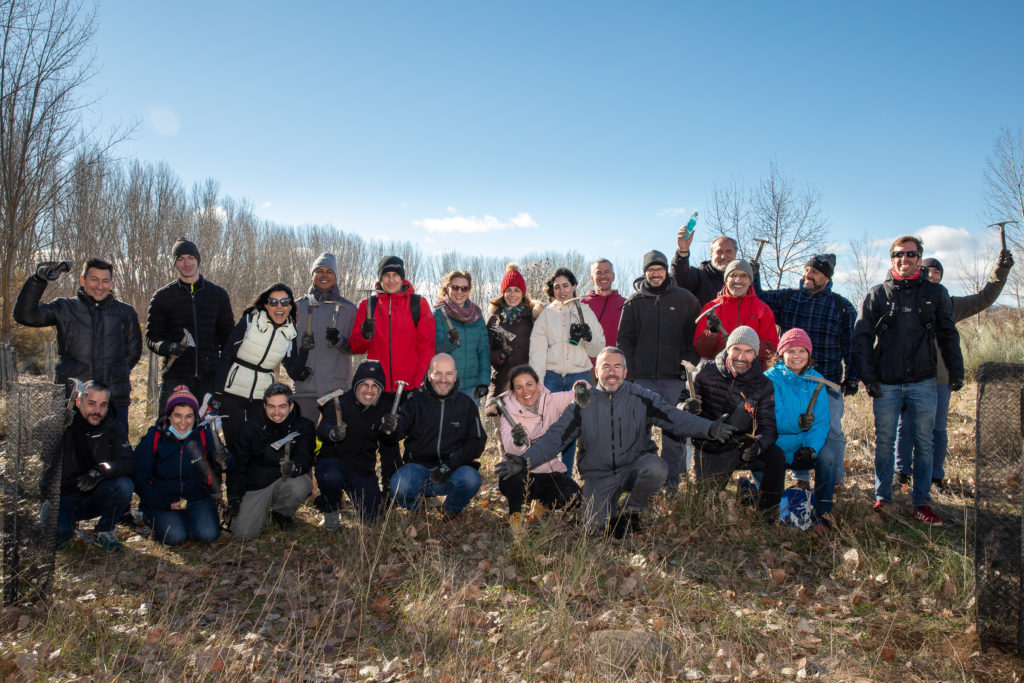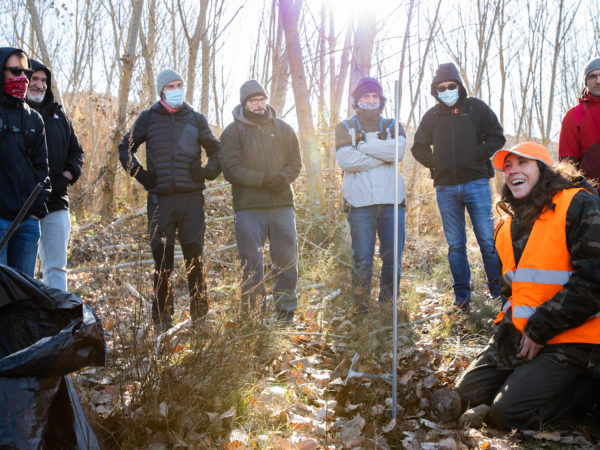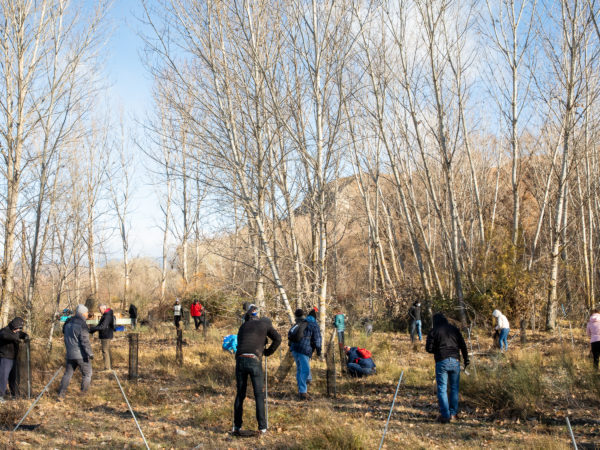Creating a greener Spain through reforestation
One of the most effective technologies we have for reducing carbon in the atmosphere is the forest. Forests act as carbon sinks, absorbing the carbon dioxide (CO2) that is warming our planet. A growing chorus of scientists point to forest restoration as a critical natural climate solution (NCS) to keep global warming beneath the 2-degree Celsius threshold. As part of a vast reforestation effort in Spain, Repsol Foundation and Microsoft are teaming up to restore the forest in an abandoned agricultural area in Torremocha de Jarama, north of the Community of Madrid.
Restoring the native habitat in northern Madrid
The Torremocha de Jarama project commenced its first phase in December 2021 with the planting of 11,340 trees across an area of more than 18 hectares. The plantation area, located on the banks of the Jarama River, is considered a “Habitat of Community Interest” by the EU’s Habitats Directive, a mark of its importance in the conservation of rare, threatened, or endemic animal and plant species. “In addition to fighting climate change, the initiative is designed to restore biodiversity to an area that has suffered deforestation,” says Javier Torres, Director of Strategy at Repsol Foundation. A team of forestry engineers with more than 30 years’ experience designed the new forest and selected 14 native species fully adapted to the conditions of the area and duly combined to ensure the new forest’s survival. Repsol Foundation investee company Sylvestris Group is executing the planting project and Spanish environmental startup Reforestum, a Microsoft AI for Earth partner, will monitor the progress of the restoration for traceability and transparency.
Investing in a just and inclusive energy transition
The Torremocha reforestation effort is designed to benefit not only the local habitat, but also the social and economic health of the community. Sylvestris assembled an inclusive team of local workers to prepare the land, plant the trees, and install individual tree protectors. To date, 14 people in disadvantaged situations have been hired in jobs related to the new forest. Repsol Foundation and its partners prioritize social impact in hiring and sourcing decisions. “We look for people out of work for a long time or people at risk of exclusion from the workforce,” says Torres. Materials and services are also sourced locally to benefit the local economy.
This socially-minded recruitment approach reflects Repsol Foundation’s commitment to “triple impact” investing—investment that achieves a positive impact on the local environment, society, and economy. António Calçada, Vice President of Repsol Foundation, explains: “The reforestation activity is profitable and sustainable. It generates employment and has benefits on the environment, contributing to a just and inclusive energy transition.”
The Torremocha project is part of a larger Spanish reforestation effort by Repsol Foundation. The Green Engine initiative aims to reforest an estimated 70,000 hectares in Spain. At the same time, the project promises to revive local economies by creating thousands of local and inclusive job opportunities in rural Spain.
On the basis of these shared values, Repsol Foundation and Microsoft began working together in March 2020. A collaboration that began with educational projects on the energy transition has now expanded into sustainability.
The Torremocha reforestation project promises to help revive not only the natural habitat of the Jarama river basin, but also the region’s local economy. “Our goal is to promote a sustainable future in which everyone has access to the benefits and opportunities it creates,” explains Alberto Granados, president of Microsoft in Spain. “This reforestation reinforces Microsoft’s ongoing commitment to the transition to a sustainable future in which Microsoft will be carbon negative.”

“The reforestation activity is profitable and sustainable. It generates employment and has benefits on the environment, contributing to a just and inclusive energy transition.”—António Calçada, Vice President, Repsol Foundation



